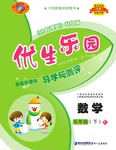题目内容
When you phoned me, I was having a meeting; how I wish I _______ your call.
A. answered B. would answer
C. had answered D. would have answered
C
【解析】
试题分析:考查虚拟语气。I wish that +宾语从句,宾语从句中的谓语动词用虚拟语气。如果指现在的事情,则用一般过去时态;如果指过去的事情,则用过去完成时态。句意:当你打电话的时候,我正在开会,我多么希望我接了你的电话。没有接电话,与过去的事实相反,故用过去完成时态,所以选C。
考点:考查虚拟语气。

练习册系列答案
 优生乐园系列答案
优生乐园系列答案
相关题目
